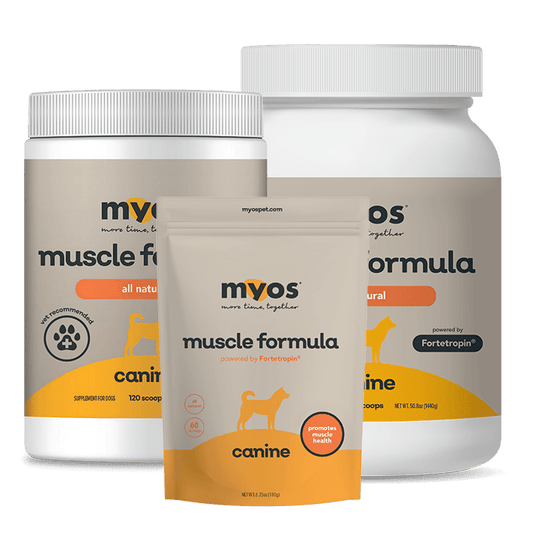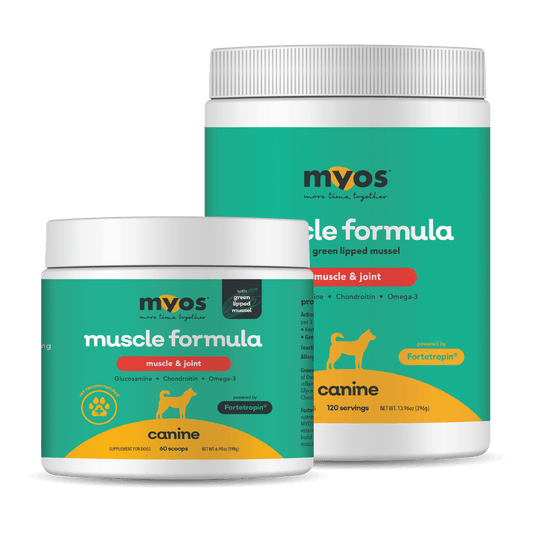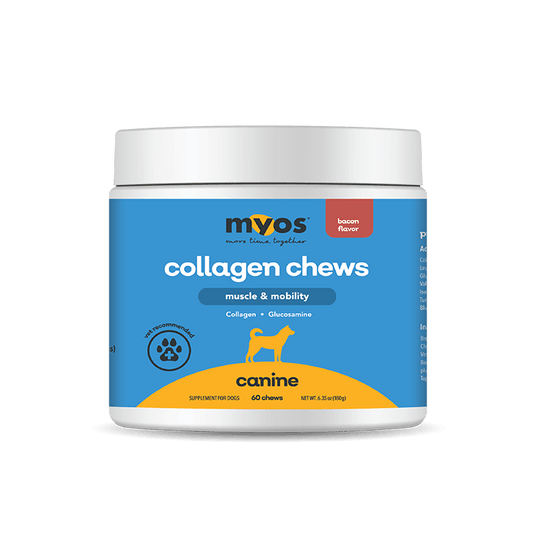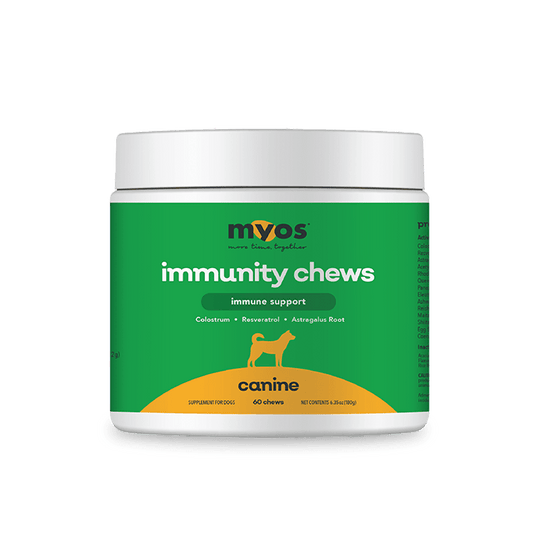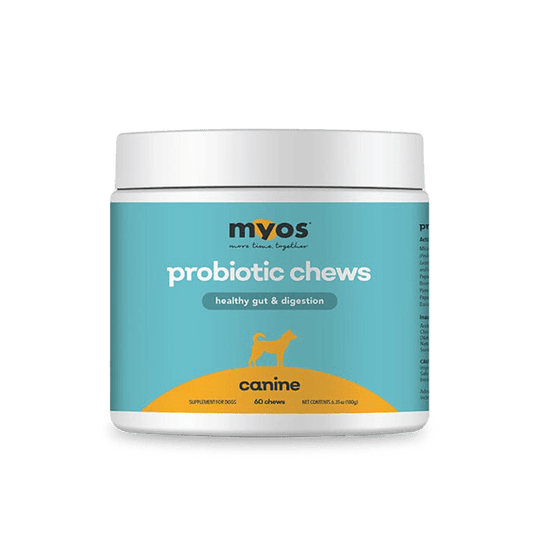When it comes to the overall well-being of aging canines, muscle health tends to take a back seat. Here’s why we should focus more on increasing muscle mass in our senior dogs.
40 million dogs in the United States are considered senior dogs (dogs over the age of seven), and with age often comes a decrease in muscle mass. Age-induced atrophy, called sarcopenia, has been frequently overlooked. But it’s slowly coming to the forefront with the understanding that muscle health supports longevity. To prevent muscle atrophy in senior dogs and its side effects--like pain, weakness, and loss of vitality--it’s essential for dog parents to make muscle health a priority. This may mean focusing on preventative muscle maintenance or, if atrophy has already started, focusing on muscle growth.
What can dog caretakers do? First, get more familiar with the signs and risks of sarcopenia. Next, learn the best ways to address it.
Muscle atrophy in dogs
Canine sarcopenia is a reduction of lean muscle mass due to aging and, nowadays, more dogs are experiencing it because they’re living longer. Sarcopenia in dogs has been proven to reduce quality of life and increase the risk of disability and mortality because muscle health supports many systems of the body and can, therefore, affect energy, metabolism, movement, balance, and bone health.
Dogs can also become susceptible to cachexia. Like sarcopenia, dog cachexia is a weakness or wasting of the body due to a chronic illness or disease and it becomes increasingly common as they age. Cancer, autoimmune disease, heart issues, and kidney issues could all lead to its development. Sarcopenia and cachexia can also occur at the same time.
What you can do
Signs to look for with both sarcopenia and cachexia include lack of energy, lameness, limping, resistance to walking, playing, exercising, and difficulty navigating stairs. You can monitor your dog’s muscle health by continually checking muscle density and by committing to annual veterinary visits. If muscle loss has been confirmed, it can be addressed with exercise, nutrition, and supplementation. Together, they’ll help improve muscle health for better stability and mobility.
Exercise
Exercise helps dogs build and maintain healthy muscle, just as it does in humans. It can be challenging for dogs struggling with muscle loss to be active, but exercise that’s not overly strenuous will help in the long run. Low-impact activities, like walking or swimming, can build muscle without causing any additional strain. A veterinarian can help you determine which type of exercise and how much is just right.
Recovery products and therapies
There are recovery products and therapies to support your dog’s muscle health. Orthopedic dog beds reduce pressure and stress on the joints, minimizing the risk of health conditions that could lead to atrophy. Sleeves and braces offer extra support and relief. Hydrotherapy and dog pools are low-impact exercise options to help keep your dog active and strong. Physical therapy has also proven to be an effective treatment for muscle loss, offering targeted exercises that help the joints and muscles.
Nutrition
For canine nutrition, it’s best to implement a well-balanced diet chosen for your dog’s specific weight requirements. To prevent weight gain and the stress it puts on the body, set up a goal-specific diet. And, since protein helps maintain existing muscle mass, ensuring that it is protein-rich is key (unless otherwise advised by a vet).
In addition to exercise, recovery aids, and therapy, adding a muscle health supplementlike MYOS Canine Muscle Formula can help reduce muscle mass loss in dogs and increase lean muscle.
While age-related muscle loss is common, there are many preventative measures and care protocols that can implemented to promote muscle health. We hope these suggestions above offer guidance and helpful tools on the road to recovery.

